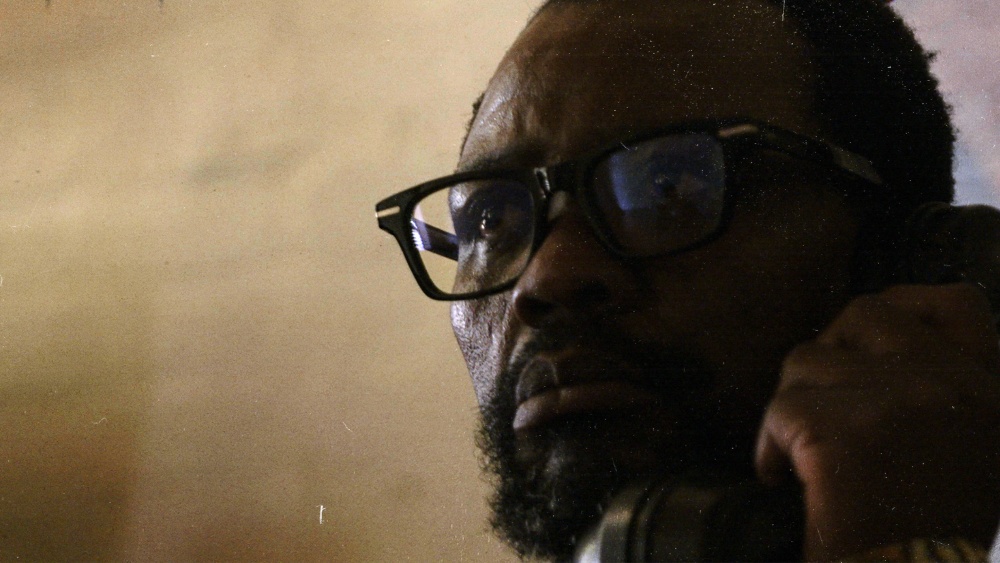Joburg Film Festival Celebrates 30 Years of South African Democracy
Following on the heels of a successful post-pandemic reboot one year ago, the Joburg Film Festival kicks off its sixth edition on Feb. 27, with the glitzy capital of South Africa’s media and entertainment industry showcasing a selection of top talents from the host country and across the African continent.
The event opens with the world premiere of Gordon Main’s apartheid-era documentary “London Recruits,” a film that sheds light on a pivotal moment in the South African liberation struggle, and wraps March 3 with the premiere of “Snake,” a psychological thriller from veteran filmmaker Meg Rickards.
After returning to Johannesburg cinemas last year for the first time since the outbreak of the coronavirus pandemic in 2020, this year’s edition looks to grow the event’s footprint, increasing the number of festival venues as well as the amount of films on offer, with a program that includes more than 60 titles from 30-plus countries.
“The festival has always positioned itself as the premier African film festival, and we are making strides, in terms of getting people to notice what the festival is and what we’re all about,” says Joburg Film Festival curator Nhlanhla Ndaba.
This year’s edition unfolds at an auspicious moment for African cinema, beginning just days after French-Senegalese filmmaker Mati Diop became the first Black director in the 74-year history of the Berlin Film Festival to win the Golden Bear, for her documentary “Dahomey.” At the festival’s closing ceremony on Feb. 24, Diop received the award from jury president Lupita Nyong’o, the first Black and African woman ever to head the Berlinale’s jury. The moment presented a striking snapshot of how far the global film industry has come in recognizing and celebrating Black achievement.
Organizers hope to continue that conversation this week in Johannesburg, where along with the festival’s parallel industry program, the Sandton Convention Center will play host to the second edition of the JBX content market. The three-day confab, which runs Feb. 28 – March 1, will welcome local and international industry professionals to debate subjects such as how the turbulent economic landscape for global and regional streaming platforms is impacting African talent and the ways in which women are driving and shaping the continent’s screen industries.
Meanwhile, the festival is ramping up efforts to tap into the next generation of African storytellers, offering a platform for students to showcase their films and launching a host of initiatives aimed at youth audiences throughout the week. It’s one of the ways that the festival — a young, growing event backed by South African entertainment giant MultiChoice — is positioning itself in a rapidly changing landscape for African media.
So, too, is a focus on “bring[ing] the best films that the continent has to offer,” according to festival executive director Timothy Mangwedi, while also shining the spotlight on actors and other African talents. “We’ve really uplifted the standard of the festival and where we’re going in terms of its placement within world cinema,” says Ndaba. “We’ve taken a lot of African films, and we’ve made them the center of what the festival is about — of course, not neglecting international films, but ensuring that there is a nice balance and a nice mix of films that will cater to a variety of audiences.”
Those efforts have borne fruit with a lineup that features 10 world premieres, 30 African premieres and 16 South African premieres, including — in perhaps the festival’s biggest coup — the African premiere of Warner Bros. and Legendary’s blockbuster “Dune: Part Two.” Other anticipated titles screening for the first time on the continent include Wim Wenders’ Cannes prize winner and Oscar nominee “Perfect Days,” Ryusuke Hamaguchi’s Venice Grand Jury Prize winner “Evil Does Not Exist,” and Raven Jackson’s Barry Jenkins-produced “All Dirt Roads Taste of Salt.”
Repping the host nation is Ian Gabriel’s political thriller “Death of a Whistleblower,” coming off a world premiere at the Toronto Film Festival, while other highlights from the African continent include Ramata-Toulaye Sy’s Cannes competition title “Banel & Adama,” selected to represent Senegal in the international feature film Oscar race, and C.J. “Fiery” Obasi’s 2023 Sundance prize winner “Mami Wata.”

The fest will host the African premiere of “All the Colors of the World Are Between Black and White.”
Courtesy of the Joburg Film Festival
Joburg will also host the African premiere of “All the Colors of the World Are Between Black and White,” a gay romantic drama from Babatunde Apalowo that premiered at the Berlin Film Festival last year and was filmed in Nigeria, where homosexuality is illegal. “We pride ourselves in also being able to break barriers in terms of what we’re able to bring to our audiences,” says Ndaba.
This year’s festival takes place on the 30th anniversary of South Africa’s first democratic elections, a milestone in the country’s transition from apartheid and a lodestar for the organizers as they shaped the event. It was one of the reasons the programming team chose to open the festival with “London Recruits,” “which really looks at the struggle, at the events that took place which shaped where we are right now,” according to Ndaba.
With a theme that pays homage to the country’s “inspiring storytellers” while celebrating the “legends” that have shaped three decades of South African cinema, this week’s Joburg Film Festival aims to recognize the young nation’s hard-earned path to freedom while also charting its course toward an uncertain future. “We are casting an eye back, in order to be able to look at where we are, and reflect, and then move forward,” says Ndaba.
The Joburg Film Festival takes place Feb. 27 – March 3.

